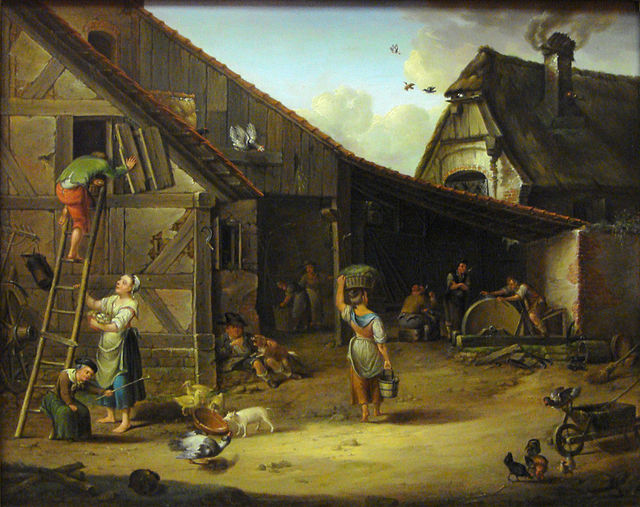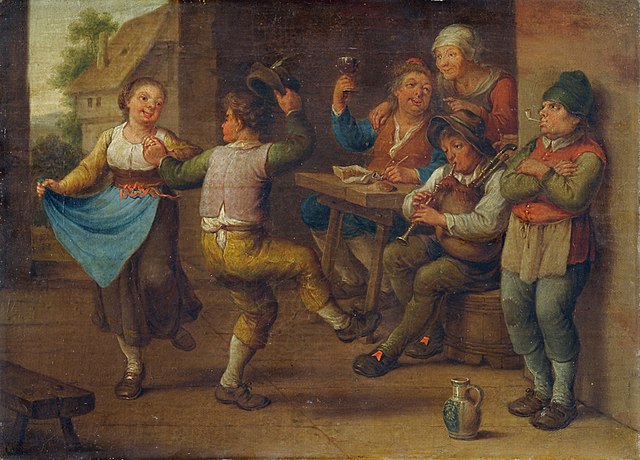Cotter, cottier, cottar, Kosatter or Kötter is the German or Scots term for a peasant farmer. Cotters occupied cottages and cultivated small land lots. The word cotter is often employed to translate the cotarius recorded in the Domesday Book, a social class whose exact status has been the subject of some discussion among historians, and is still a matter of doubt. According to Domesday, the cotarii were comparatively few, numbering fewer than seven thousand people. They were scattered unevenly throughout England, located principally in the counties of Southern England. They either cultivated a small plot of land or worked on the holdings of the villani. Like the villani, among whom they were frequently classed, their economic condition may be described as free in relation to everyone except their lord.
The home (Kotten) of a Kossäten in Wuthenow in eastern Germany
A peasant is a pre-industrial agricultural laborer or a farmer with limited land-ownership, especially one living in the Middle Ages under feudalism and paying rent, tax, fees, or services to a landlord. In Europe, three classes of peasants existed: non-free slaves, semi-free serfs, and free tenants. Peasants might hold title to land outright, or by any of several forms of land tenure, among them socage, quit-rent, leasehold, and copyhold.
Young women offer berries to visitors to their izba home, 1909. Those who had been serfs among the Russian peasantry were officially emancipated in 1861. Photograph by Sergey Prokudin-Gorsky.
A farm in 1794
Finnish Savonian farmers at a cottage in early 19th century; by Pehr Hilleström and J. F. Martin
"Feiernde Bauern" ("Celebrating Peasants"), artist unknown, 18th or 19th century





